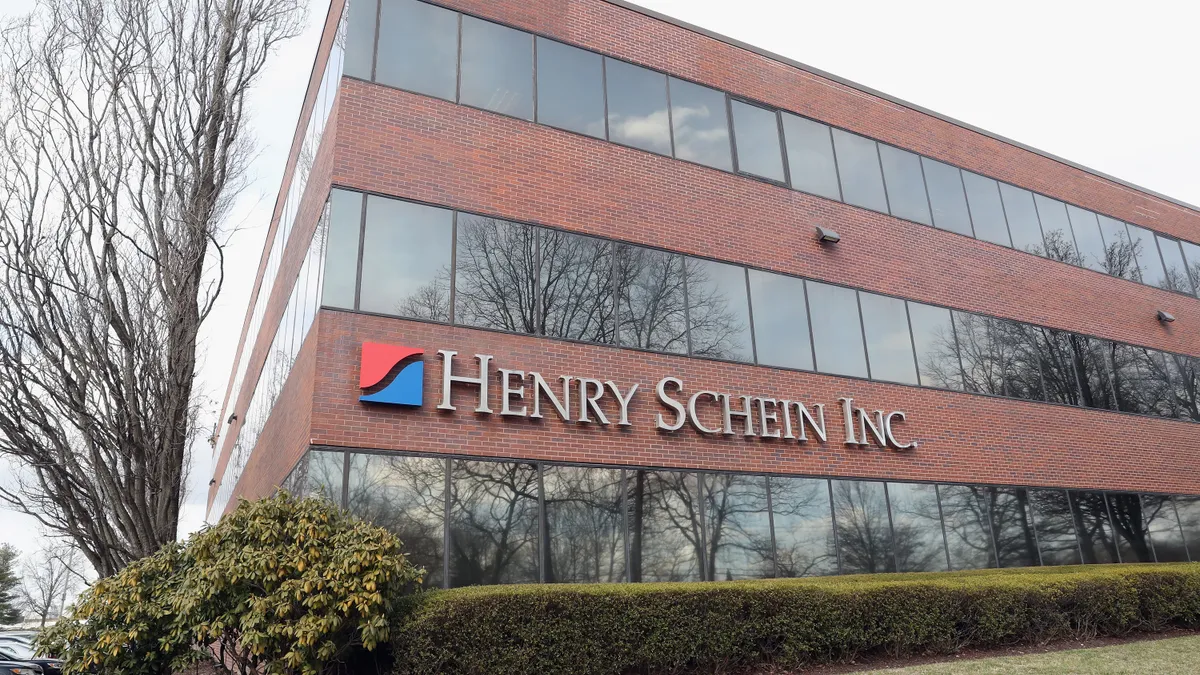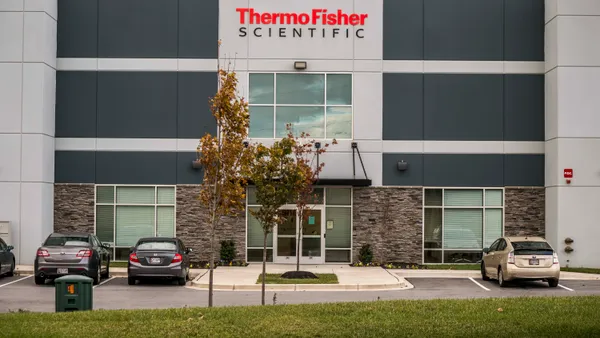Dive Brief:
- Hologic said Monday it has struck a deal to pay $350 million for Gynesonics, a company that sells a treatment for uterine fibroids.
- Gynesonics’ transcervical Sonata system uses ultrasound guidance and radiofrequency energy to ablate fibroids without the need for an incision. Three years after treatment, 88% of patients in a clinical trial reported reduced fibroid symptoms.
- The acquisition will give Hologic a device that competes with its Acessa Provu system. William Blair analysts said the deal fits Hologic’s focus on tuck-in acquisitions of assets that are early in their growth trajectory.
Dive Insight:
Uterine fibroids are benign pelvic tumors found in nearly 70% of white women and more than 80% of black women in the U.S. prior to menopause. Around one-third of women with fibroids report symptoms such as menstrual bleeding that negatively affect their daily lives. A U.S. survey conducted in 2013 found women typically want to avoid invasive surgery for the condition.
Treatment options range from medical management to hysterectomy. Companies including Gynesonics and Hologic have given women more options. Hologic’s Acessa procedure requires a minimum of three incisions for the surgeon to insert imaging and radiofrequency devices.
Gynesonics’ Sonata System eliminates the need to make incisions. The mean time to return to normal activity after treatment with Sonata in a study was 2.2 days. Gynesonics tracked benefits out to three years, with women reporting improved quality of life and a 94% rate of treatment satisfaction.
Sonata received 510(k) clearance in 2018, and the Food and Drug Administration cleared the company’s next-generation system in 2021. In 2023, Gynesonics raised $67 million to fund commercialization of the device.
Needham analysts said in a note to investors that Gynesonics complements Hologic’s existing gynecological surgical business. William Blair analysts concurred, telling investors that having different solutions in Hologic’s portfolio “should allow for greater adoption.”
William Blair’s team discussed the deal in light of what Hologic’s vice president of investor relations, Ryan Simon, said when he met with the analysts last month. Hologic ended June with $2.4 billion in cash and equivalents and little debt.
The William Blair team said Hologic looks for tuck-in acquisitions of assets that fit into one of the company’s existing sales channels.
“The company has been focused on targets that have products early in their growth trajectory and could benefit from Hologic’s infrastructure and come at a price that still allows for other tuck-in acquisitions or share buybacks,” the analysts said. “Gynesonics appears to fit the bill here.”
In April, Hologic agreed to buy breast cancer surgery business Endomagnetics for about $310 million.













